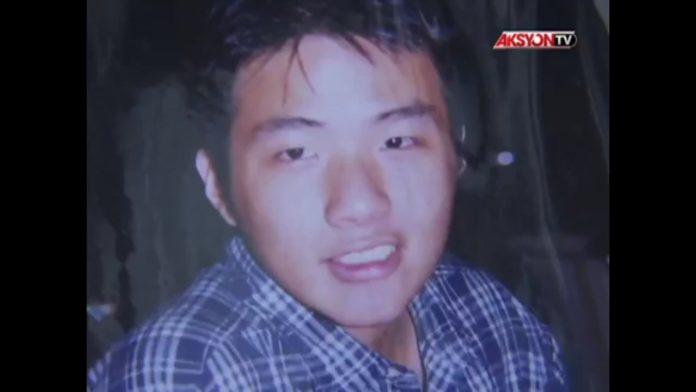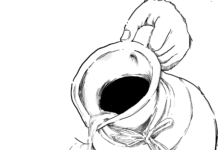IT has been 15 years since Mark Welson Chua was killed after exposing the anomalies in the Reserve Officers’ Training Corps (ROTC) program of the University.
Chua’s death led to the abolition of mandatory ROTC and the passage of the National Service Training Program Act.
But his legacy is in jeopardy due to the efforts of the Duterte administration and the Armed Forces to bring back mandatory ROTC.
Mark Welson, then a 19-year-old a mechanical engineering student, and fellow cadet Romulo Yumul exposed the anomalies in UST-ROTC program to the Varsitarian in 2001.
Two months after he exposed the corruption in the UST-ROTC, Mark was abducted on campus and was beaten at the UST Department of Military Science and Tactics (DMST) office on March 15, 2001. His decomposing body was fished out of the Pasig River, near Jones Bridge, three days later.
His body had been wrapped in a carpet, and his hands and feet were hogtied. To suffocate him, his head was wrapped with duct tape.
Mark was supposed to meet his father, Welson Chua in Makati after speaking to an agent supposedly offering him work in the military’s student intelligence network.
Mark sent a text message to his father saying he was on his way. Hours later, the Chua family received a call claiming Mark had been kidnapped. The caller asked for a P3-million ransom.
Three months after his death, Mark was posthumously awarded the San Lorenzo Ruiz Medal of Courage, for showing exceptional and exemplary courage in standing up for the truth and Thomasian ideals. His father Welson Chua, who died in 2008, received the award.
Mark’s death led to the implementation of the National Service Training Program, abolishing the mandatory implementation of ROTC and adding other service options—Civic Welfare Training Service and Literacy Training Service. Both do not involve military training.
Back story
Evelyn Songco, former director of the Office of Student Affairs, recalled that prior to Mark’s death, his father filed complaints with her office and gathered all the students concerned over the UST-ROTC program’s irregularities.
“[We] gathered the people who had something to say when they wrote us a letter,” Songco told the Varsitarian.
“Mark Chua was one of them and then of course he was afraid, and we secretly met. After the meeting they agreed to write their testimonies or their complaints, and passed it on to us,” she said.
The complaints resulted in the removal of Maj. Demy Tejares, commandant of the University’s ROTC unit, along with the DMST staff.
The narrative of the students was used by then Varsitarian Special Reports writer Jayme Emerald Brucal to write her story on the supposed anomalies and irregularities in the UST-ROTC.
The complaints included bribery, forced payments, insufficient instruction and intimidation.
“The hazing and initiation rites were also issues then—the excessive use of physicality to prove your ‘loyalty’ to the corps,” said lawyer Angelo de Alban, a UST professor and Mark’s batch mate in the UST Golden Corps of Cadets, in an email.
Tejares, however, had nothing to do with the murder. He is now deputy commander of the Task Force Zambasulta, based in Basilan.
Guilty
Three years after Mark was fished out of the Pasig River, Manila Regional Trial Court Judge Romulo Lopez sentenced one of the accused, Arnulfo Aparri, Jr., to the maximum penalty of death. Death penalty however was abolished before the sentence could be carried out.
Aparri, who was also ordered to pay P50,000 in indemnity to the Chuas, was then a high-ranking ROTC officer and an architecture student. Aparri surrendered to the National Bureau of Investigation on Feb. 9, 2002.
Former ROTC officer Franco Suelto, a suspect-turned-witness, identified Aparri as one of the men who wrapped Mark’s body using an old carpet inside the DMST office on the night of his murder on March 15, 2001. Suelto was then a psychology junior and a member of the UST Golden Corps like the other suspects.
Aparri’s co-accused—Paul Joseph Tan, Eduardo Tabrilla, and Michael Von Rainard Manangbao—were at large and issued alias warrants of arrest.
A few years later, Tabrilla pleaded guilty to homicide before the Manila court.
Mark as a cadet
Known to his close friends as “Baron,” Mark had dreams of joining the army since he was in high school.
He planned to enroll in the Philippine Military Academy after graduating from secondary school, but his grandparents refused, fearing that he might be discriminated against for being of Chinese descent. Mark pursued mechanical engineering in the University instead.
But current DMST Commandant Edgar Nigos said Chua’s death was the result of a “personal conflict” with another cadet officer, whom he did not name.
“The confrontation revolved around personal matters between [Chua] and a cadet officer. ROTC was just pulled into the spotlight because a cadet officer [used his power over the cadet],” he told the Varsitarian in a previous interview.
Chua’s legacy in danger?
Songco said students of private institutions should have the freedom to choose their college service training programs.
“It can be mandatory in the state colleges and universities because that is funded by the government, [but] as to the private colleges and universities, there should really be some options for them because the government does not subsidize their tuition,” she said.
Akbayan Youth Chairwoman Rafaela David said in an interview that reviving mandatory ROTC would be a disservice to Chua’s memory and legacy in higher education.
“If you suddenly bring the ROTC back, it’s as if you are disregarding the victory of the past and that’s also a disservice to Chua’s memory,” David said.
One aspect of the story however seems to have been forgotten – that Mark would not have wanted mandatory ROTC abolished.
In 2006, the older Chua told the Varsitarian that if Mark were alive, he would not have supported the policy shift.
“Mark did not want to abolish the ROTC,” said Welson, two years before his death following a heart attack. “It’s not the institution, it’s the way it’s being run.”
Instead of eradicating the anomalies, Welson said, the move might have encouraged more corruption in the two new programs launched by the government under NSTP.
“Instead of one ROTC, now the government and the universities would have two other departments to look after,” Welson said. “These departments can be corrupt too.”



















[…] The Varsitarian (retrieved 09 February […]